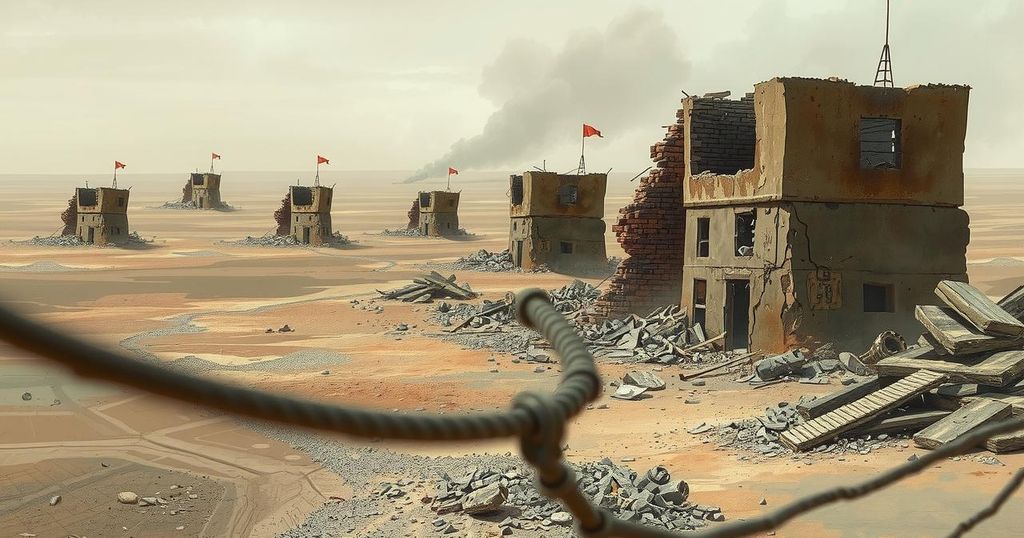U.S. and Houthis Commit to Escalation Following Airstrikes in Yemen

The U.S. has launched airstrikes against Houthi rebels in Yemen, prompting both the U.S. and the Houthis to vow escalation. Secretary of State Marco Rubio affirmed that operations will continue until the rebels are incapacitated. The Houthis have attacked shipping under the guise of supporting Palestinians, leading to significant casualties from the airstrikes. U.N. officials call for restraint amid worries over the humanitarian crisis in Yemen.
The United States and Iran-backed Houthi rebels in Yemen have committed to an escalation of hostilities following recent U.S. airstrikes aimed at deterring Houthi attacks on vessels in a vital shipping corridor. Secretary of State Marco Rubio emphasized that the U.S. will not allow the Houthis to control maritime access, stating that operations will persist until the rebels lose their capacity to interfere with shipping.
President Donald Trump pledged to deploy “overwhelming lethal force” to compel the Houthis to cease their aggressions and indicated that Iran would be held accountable for these actions. The Houthis have engaged in repeated attacks on international shipping in the Red Sea, claiming these are acts of solidarity with Palestinians during the ongoing Israel-Hamas conflict.
Despite a temporary halt in Houthi aggressions with the ceasefire established in January, the rebels purportedly announced a revival of hostilities against Israeli vessels following a cut-off of humanitarian supplies to Gaza. U.S. airstrikes in Sanaa and Saada reportedly resulted in significant casualties, including women and children, highlighting the humanitarian crisis in Yemen.
National Security Adviser Michael Waltz confirmed that these airstrikes specifically targeted Houthi leaders, emphasizing a significant reduction of their operational capabilities. However, the Houthis responded assertively, indicating their intent to retaliate against U.S. actions.
A United Nations spokesperson urged restraint from all parties involved, underscoring concerns about the adverse humanitarian conditions in Yemen. Rubio noted that Houthi assaults have targeted U.S. Navy interests over 170 times in the past year and a half, marking serious risks to maritime security.
Iranian officials, including Gen. Hossein Salami of the Revolutionary Guard, denied involvement in the Houthis’ military operations, while Iran’s Foreign Minister criticized U.S. airstrikes, reaffirming that Iran’s policies are not subject to Washington’s directives. The United States previously conducted strikes in coordination with its allies but undertook these actions unilaterally, signifying a new phase in U.S. engagement against Houthi aggressions.
The USS Harry S. Truman carrier group, including destroyers and a submarine, remains active in the Red Sea region amidst these developments.
The significance of these events indicates a potential escalation in the conflict, raising concerns over security and humanitarian issues in the region.
The recent U.S. airstrikes in Yemen have triggered promises of escalation from both the U.S. and the Houthi rebels, intensifying an already volatile situation in the region. With casualties reported and significant military assets deployed, the engagements raise serious concerns about maritime security and humanitarian conditions in Yemen. The ongoing conflict reflects not only local tensions but also wider geopolitical dynamics involving Iran and its regional allies.
Original Source: www.local10.com








